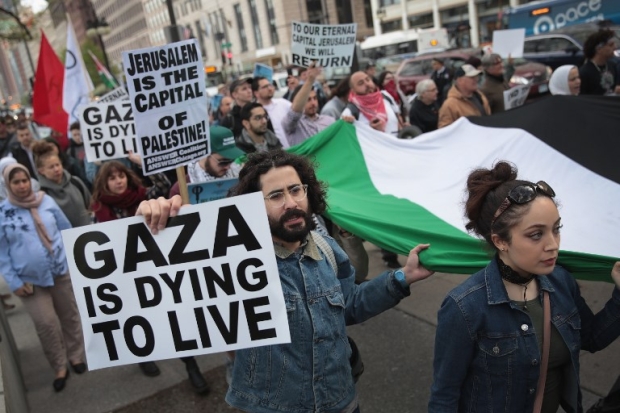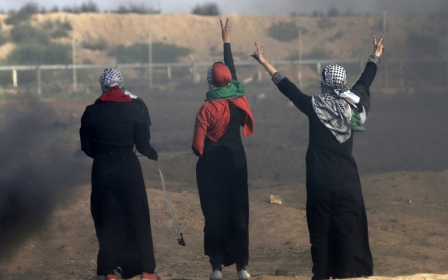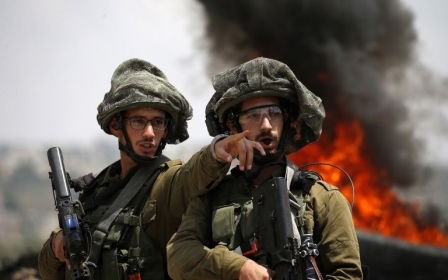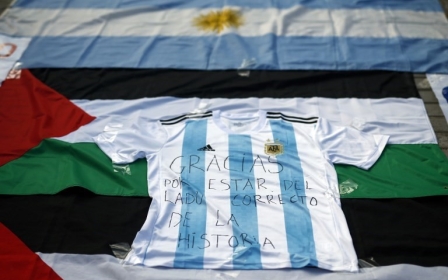Can a peaceful protest movement finally achieve justice for the Palestinians?
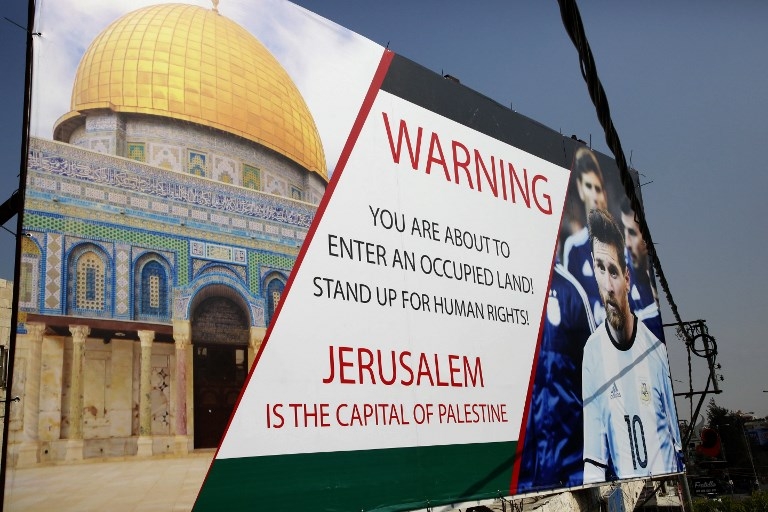
The prospects for Palestinian self-determination have never been so gloomy.
President Mahmoud Abbas is in poor health, and a succession struggle has already begun. The US decision to move its embassy to Jerusalem has effectively removed the holy city from the negotiating table, as a final "deal" is expected to be presented by the Trump administration to end the Israeli-Palestinian conflict. In the meantime, peaceful demonstrations along the Israel-Gaza border have been crushed by snipers.
More than a century after the Balfour Declaration, 71 years after the UN partition plan, 51 years after the occupation of the West Bank, and 25 years after the launching of the so-called peace process, it is time to reassess the Palestinian question. Is it possible that peaceful demonstrations will succeed where violence and negotiations have failed?
The failure of armed struggle
There have been three distinct aspects to the Palestinian struggle, overlapping to some extent: the armed struggle, the Oslo process and, now, the international legal struggle accompanied by peaceful protest marches in Gaza.
Armed struggle has failed. It ended formally on September 1993 on the White House lawn, where Yitzhak Rabin and Yasser Arafat shook hands in front of a complacent Bill Clinton, who was already prefiguring his place in history.
Irrespective of whether the Oslo process is still alive, it has clearly failed in providing a fair solution to the Palestinian problem
The Israelis claim that violence has never ended because of Hamas - but until the Second Intifada erupted in 2000, the Palestinian mainstream had embraced the Oslo process. Armed struggle has been long, bloody and painful for both sides.
Palestinians fought against decisions they considered unfair, which aimed to provide, in a way detrimental to them, a home to another people, the Jews, who had suffered centuries of persecution in Europe, culminating in the Holocaust.
It is useless to discuss here if this Palestinian choice was right or wrong. Of course, violence is always wrong. We can only say that it failed in fulfilling Palestinian aspirations, although it was tragically useful in raising international awareness about the Palestinian issue.
While we know the Oslo process started in September 1993, we are less sure whether or when it ended. To be sure, many death certificates have already been issued. Some scholars believe the window for negotiations ended with the Camp David failure in the summer of 2000; others point to the last unsuccessful attempt carried out by former US secretary of state John Kerry during the Obama administration; and a delusional die-hard minority still believe a peace process is ongoing with the current US administration, awaiting Donald Trump’s “deal of the century”.
The failure of negotiations
Irrespective of whether the Oslo process is still alive, it has clearly failed in providing a fair solution to the Palestinian problem.
From 1993 to 2000, while the two sides were negotiating a possible two-state solution through US "mediation", the numbers of Israeli settlers in the West Bank and East Jerusalem - where the Palestinian state was supposed to be created - doubled. Nonetheless, the ones accused of acting in bad faith, of cheating and failing to grab the opportunities provided by Clinton, were the Palestinians.
Arafat denied Clinton his coveted place in history. His sin was the rejection of a deal that pretended to sell the Palestinians a "peace plan" consisting of a series of bantustans, with the bonus that they could call it a state if they wished. Trump’s "peace plan" could be even worse.
Clinton's narrative has never changed since then, either in the mainstream media or western chancelleries. In the following years, this narrative was reinforced by the "we have no partner" mantra echoed systematically by different Israeli leaders. Finally, when former US president Barack Obama's administration appeared a bit more serious in promoting peace, the condition of the recognition of Israel as a Jewish state was suddenly introduced.
The role of BDS
If the two-state solution is still alive, it is definitely on life support. Palestinians have started claiming their rights through the legal instruments envisaged by international law and UN institutions, including requesting the recognition of the state of Palestine. The US and many Europeans have adamantly objected, defining these as unhelpful and not conducive to a proper climate for fruitful negotiations. If these powers gave to their efforts towards stopping illegal Israeli settlements just a tenth of the energy they put towards disrupting legal Palestinian initiatives, the situation today would be quite different.
A peaceful, spontaneous and legitimate initiative to protest against the Israeli government's policies is the boycott, divestment and sanctions (BDS) movement. It has been labelled as anti-Semitic, with laws discussed in various countries to stop its activity.
Although it is unacceptable to promote BDS initiatives using anti-Semitic language, it is also unacceptable to silence the constitutionally protected rights of protest and expression. Fair criticism of Israel's policies and the defence of Palestinian rights fall into these categories.
Unfortunately, it is more and more frequent that simple complaints about the Israeli government's policies towards Palestinians are quickly, inaccurately and ignominiously labelled as anti-Semitism, a term that lacks a unanimous definition and is too often abused.
International responsibility
When Palestinians used violence, they were considered terrorists and were condemned and boycotted. When they negotiated for more than 20 years, they were duped by "mediators", portrayed as serial cheaters, blamed for the failure of the talks, and labelled as ungrateful and unable to grasp the opportunities provided to them.
Now that they are simply protesting peacefully along Gaza's fences, as western lecturers have always "advised" them to do, they are being killed by Israeli snipers.
BDS, as evidenced by the last example set by the Argentinian soccer team, is more moral and seems a more effective tool than any rocket launched from Gaza to promote the Palestinian cause.
Of course, the so-called international community should find the courage to halt Israelis snipers' fire instead of justifying it, and safeguard - always, and not a la carte - the universal rights of expression and protest.
- Marco Carnelos is a former Italian diplomat. He has been assigned in Somalia, Australia and at the United Nations. He has served in the foreign policy staff of three Italian prime ministers between 1995 and 2011. More recently he has been Middle East Peace Process Coordinator Special Envoy for Syria for the Italian government and, until November 2017, ambassador of Italy to Iraq.
The views expressed in this article belong to the author and do not necessarily reflect the editorial policy of Middle East Eye.
Photo: A picture taken on 5 June 2018 shows a poster erected on a main street in the West Bank town of Hebron, denouncing the since-cancelled friendly football match between Argentina and Israel (AFP)
New MEE newsletter: Jerusalem Dispatch
Sign up to get the latest insights and analysis on Israel-Palestine, alongside Turkey Unpacked and other MEE newsletters
Middle East Eye delivers independent and unrivalled coverage and analysis of the Middle East, North Africa and beyond. To learn more about republishing this content and the associated fees, please fill out this form. More about MEE can be found here.



